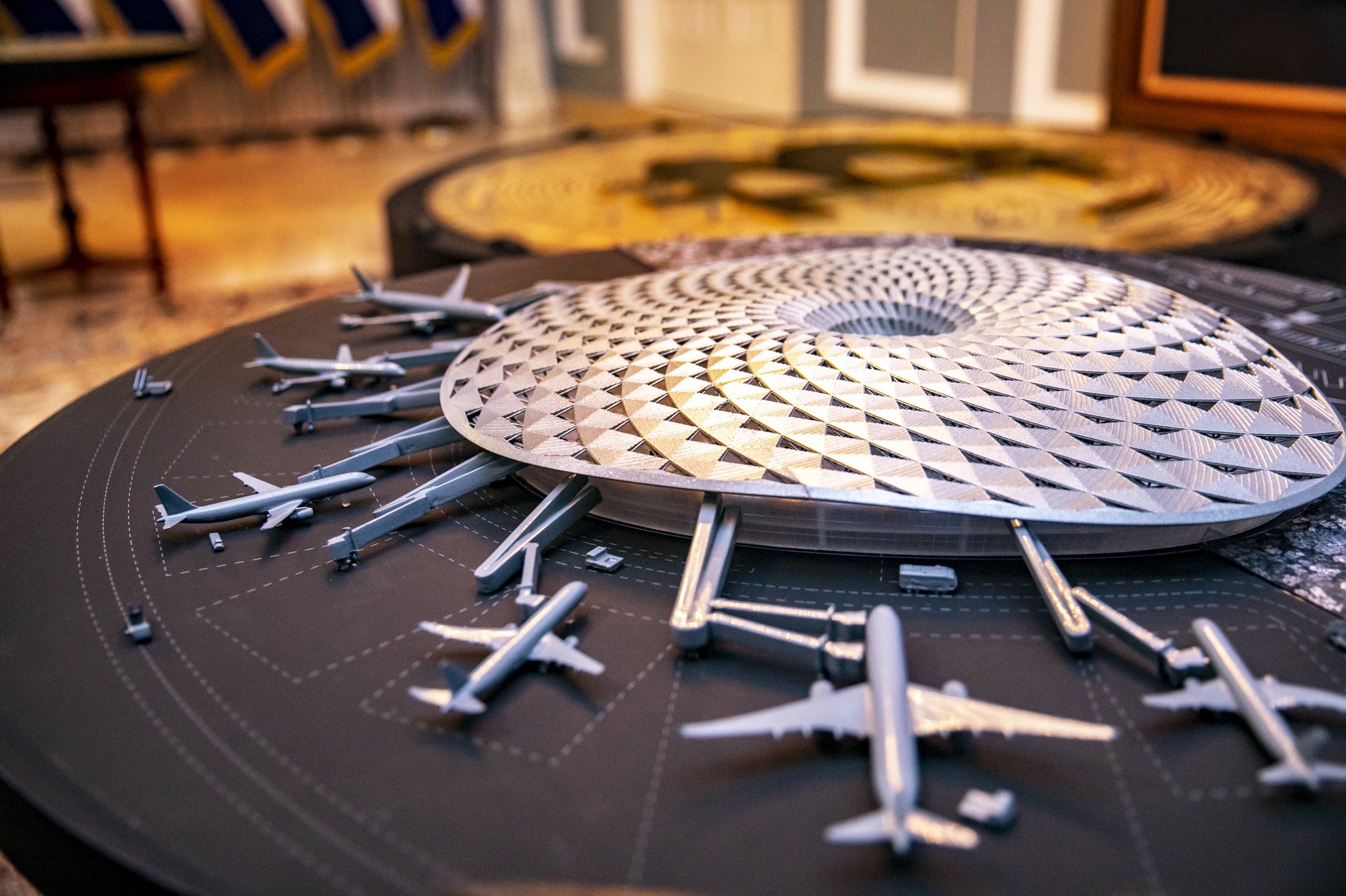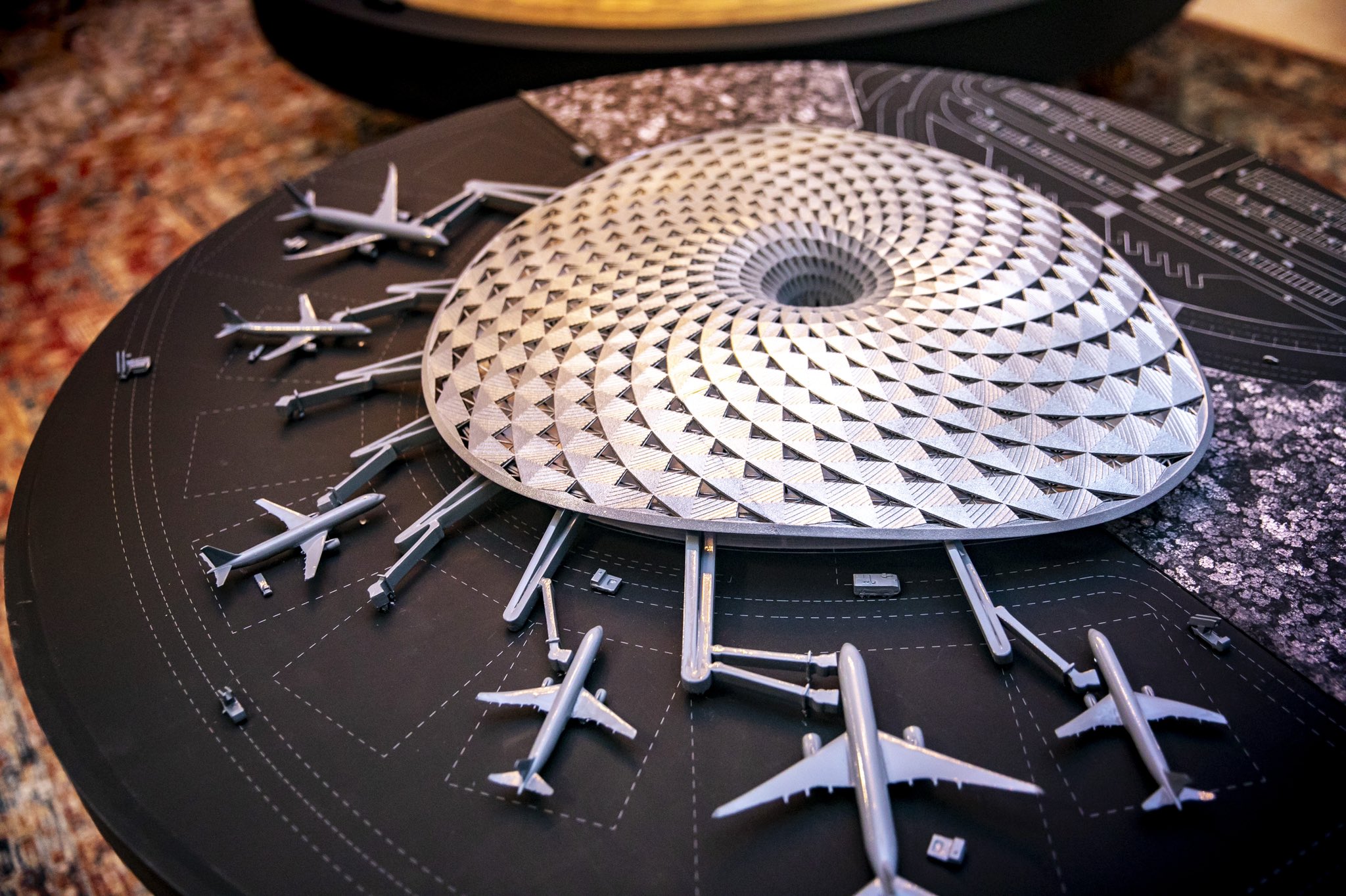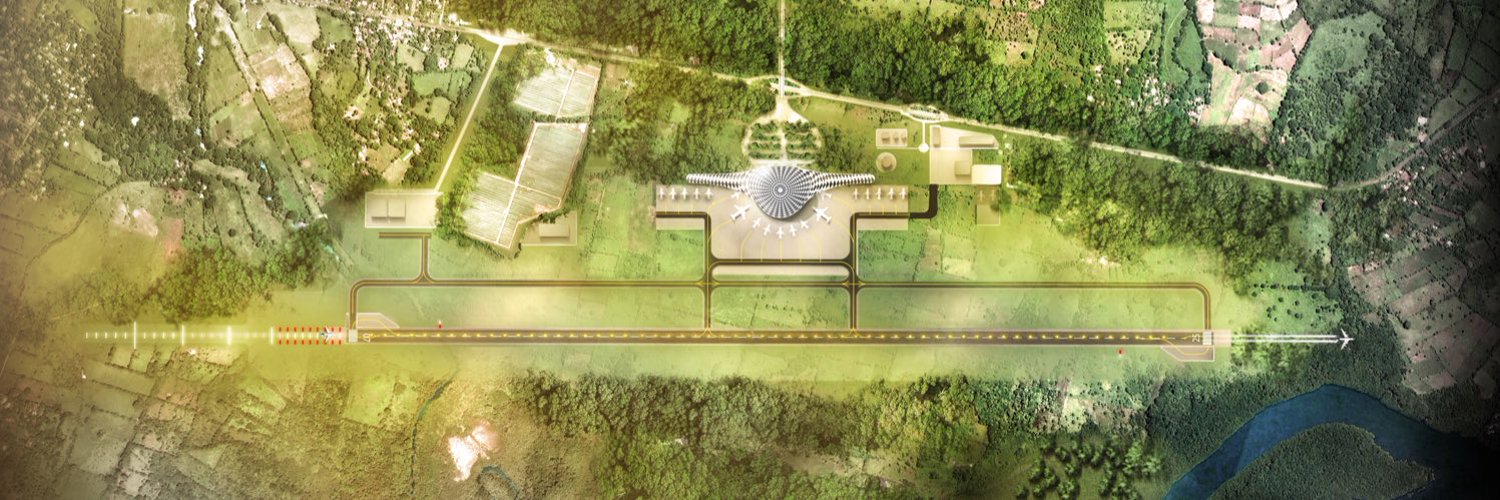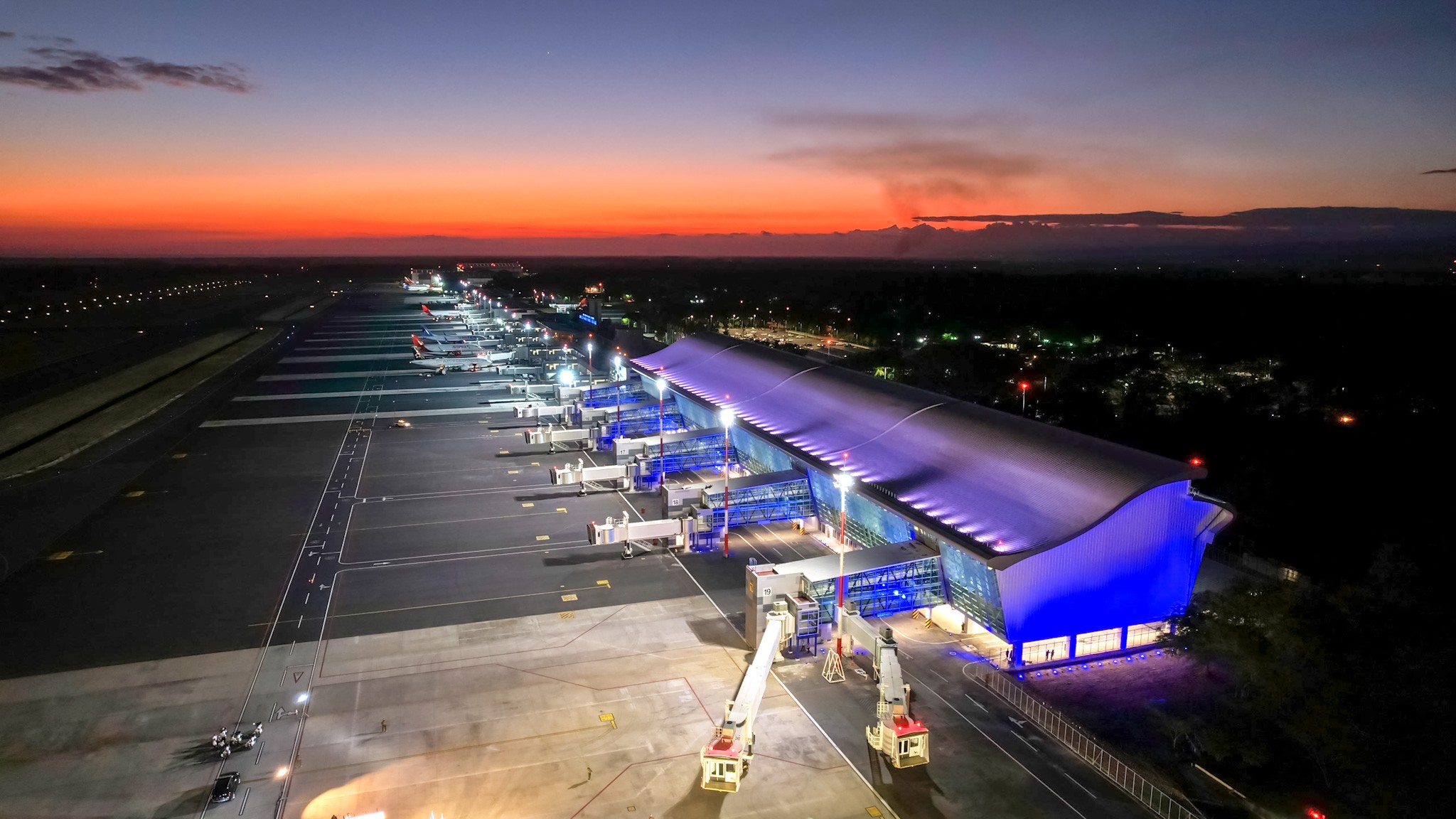Bitcoin City will have its own airport
The president of El Salvador, Nayib Bukele, unveiled yesterday through his Twitter account the model of the ambitious urban project called Bitcoin City, which will be located near the Conchagua volcano, in the department of La Union, about two hundred kilometers southeast of the Salvadoran capital.
In September last year El Salvador became the first country in the world to accept bitcoin as legal tender, and a couple of months later, Bukele announced the construction of a new tax-free model city to attract citizens from all over the world to be financed with bonds from the bitcoin ecosystem for an amount of USD 1,000,000,000,000 over ten years.
This operation was scheduled for 2022 but so far has not been carried out, in theory, due to the complexity of the market after the Russian invasion of Ukraine.
But now the project has returned to center stage with the presentation of the model and renderings of Bitcoin City, by Mexican architect Fernando Romero.
The city will be served by the new Pacific International Airport, which, as can be seen, will have a modern terminal with eight jetways, two of them double, with a surface area of almost 15,000 square meters.



The project for this new airport, valued at USD 300 million, had already been in the works even before the presentation of Bitcoin City as part of the Cuscatlán plan, a series of strategic objectives proposed by the Bukele administration that includes works such as a train line, ports, roads, and various improvements to the Salvadoran state. But such an airport infrastructure project will fit even better with an urban development such as Bitcoin City.
It is estimated that the airport itself will generate 4,700 jobs during its first year and more than 50,000 in a decade, when an estimated one million passengers per year (with a perspective of three million in 25 years) will be mobilized. More than 23,000 people will be employed during the construction phase.
At the end of April Bukele achieved the approval by the Legislative Assembly of the «Law for the Construction, Administration, Operation and Maintenance of the International Airport of the Pacific», with the purpose of speeding up the development of the project, leaving out certain bureaucratic processes. This raised some warning lights about potential acts of corruption in the contracting of suppliers, but in theory the control will oversee the Court of Accounts of the Republic.

Now, as if to put into perspective what these facilities represent for El Salvador, we can mention that the airport terminal serving the capital has 19 gates with handles, 5 of them incorporated this year after the expansion works that added 22,000 square meters covered, totaling a capacity of 5 million passengers per year (in 2021 almost 2.5 million were mobilized).

According to data obtained by Aviacionline through Cirium, the airport that serves the Salvadoran capital currently receives some 600 flights a week from Air Transat, American Airlines, Aeromexico, Avianca, CM Airlines, Copa Airlines, Delta Air Lines, Frontier Airlines, Iberia, TAG, Tropic Air, Volaris, Spirit Airlines and United Airlines, connecting it to Dallas/Fort Worth, Miami, Mexico City, Bogota, Guatemala City, Guayaquil, Washington-Dulles, Houston-Intercontinental, New York-JFK, Los Angeles, Lima, Ontario, Panama City, San Pedro Sula, San Francisco, San Jose de Costa Rica, Quito, Comayagua, Toronto, Atlanta, Orlando, Cancun, Fort Lauderdale, Belize, Montreal and Managua.
Seat supply in El Salvador in May is 26% below that of the same month in 2019, prior to the outbreak of the pandemic, at about 90,000 per week.

/https://aviacionlinecdn.eleco.com.ar/media/2022/05/El-Salvador-aeropuerto-del-pacifico-bitcoin-city-maqueta-ciudad-2.jpg)
Para comentar, debés estar registradoPor favor, iniciá sesión